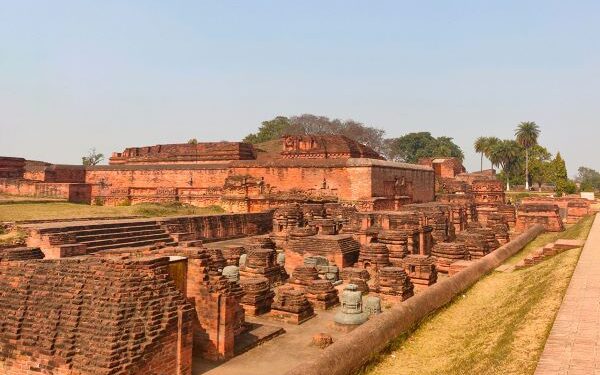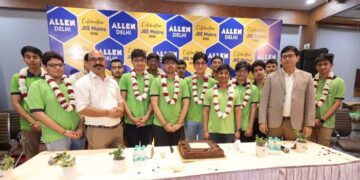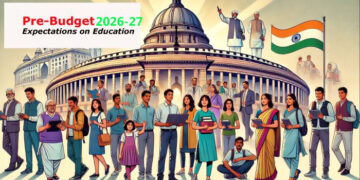India’s rich cultural heritage and ancient education systems have been inspiring many scholars for a long time all over the world. From the West to East, India’s civilizational past has tempted researchers to explore about sciences, various disciplines and applications by digging deeper into available literature and other resources.
However, interest and efforts on developing an understanding on the Indian Knowledge Systems (IKS) within the country has largely remained notional and confined. Education systems in India are more concentrated on teaching/learning for marks than project and research-based learning culture, have contributed to the neglect of IKS as well
Largely unexplored in country’s own education system, a need to integrate IKS into modern curriculum has been felt for a long time and thankfully the Government has made a start on this with NEP 2020 and Frameworks. The rationale is it will not only open up newer themes for Indian students and education institutions in research but will also revive some of the lost models and sciences. IKS is becoming more relevant in today’s world where governments are formulating policies towards fostering sustainability and value-based learning.
Indian Knowledge Systems (IKS) refer to the indigenous knowledge, practices, traditions, and heritage that have taken root and developed over various millennia in India. These encompass various disciplines and are aimed at making learners proficient in various domains such as Arts, Literature, Science, Technology, Mathematics, Indian Languages, Indian Architecture, Living with Nature, and Agriculture. Here, traditional pedagogies are followed by both learners and teachers where constant upskilling also gets highest priority.
How the IKS blend is feasible?
In today’s VUCA (Volatile, Uncertain, Complex, and Ambiguous) world, it is being increasing felt the human mind must be conditioned with a strong base of local culture coupled with modern thinking
“Think Globally, Act Locally” is an approach that is followed by most world leaders today. In Indian context, this translates to moulding minds through a healthy combination of Indian traditional wisdom, holistic perspectives, and methodologies emanating from modern education practices/pedagogies.
Indian Knowledge Systems are inherently multidisciplinary at the core, and allow learners to choose from a plethora of options. These consist of science, arts, ethics, philosophy, astronomy, and mathematics. Hence, this element of offering multidisciplinary choice-based learning does well to serve as a bridge between ancient wisdom and modern contemporary knowledge.
Through incorporation of IKS elements into modern curriculum, educators can look at providing holistic education that makes learners well-rounded professionals. A byproduct of integration of IKS into modern curriculum is life skills. These come in handy throughout the lifetime of learners; rendering them capable to face challenges and take the right decisions at critical junctures.
Accelerating the academic ecosystem for IKS blending
The Government has proactively brought IKS on the educational map both through NEP 2020, education frameworks and promotion through academic bodies. However, it still needs to include substantial funds dedicated to enhancing IKS within the educational framework. This financial support is crucial for several reasons:
- Funding for Research and Development: There is a pressing need for increased funding for research initiatives focused on IKS. Establishing new research institutes and enhancing existing ones can drive IKS-related research, producing valuable treatises and educational materials.
- Technological Integration: Allocating funds to develop and integrate technology such as Artificial Intelligence (AI) and Machine Learning (ML) into IKS can aid in decoding ancient texts and creating accessible educational resources. This would make IKS more available to a global audience and enhance its relevance in modern education.
- Training and Upskilling Educators: Investment in professional development programs for educators to effectively blend IKS with modern teaching methodologies is essential. This includes training teachers to incorporate traditional knowledge and practices into their curriculum.
- Infrastructure Development: Enhancing infrastructure to support IKS-centric learning environments, such as specialized Makerspaces and experiential learning centres, will provide students with hands-on, practical experiences rooted in Indian traditions.
- Policy and Curriculum Development: Continued emphasis on integrating IKS into the national curriculum, as outlined in NEP 2020, requires sustained financial support. This ensures that educational policies remain aligned with the goal of providing a holistic education that combines traditional wisdom with contemporary knowledge.
The Road Ahead for IKS
Policy makers have been emphasizing on the need of a value-based education system and laying significant thrust on IKS. The emergence of technology like AI and ML could do well to mitigate certain challenges such as decoding ancient texts into educational materials that could be taught. This would make IKS accessible to the wider populace globally. There is also a pressing need for researchers to take up IKS-related research and come out with valuable treatises so that the next generation of learners are empowered to innovate.
The integration of Indian Knowledge Systems (IKS) into the modern curriculum represents a pivotal opportunity to redefine education in India. By prioritizing the preservation and integration of our rich cultural heritage with contemporary educational methodologies, we can empower learners to excel in a globally interconnected world. Globalization has opened up the world. Like economies, the education sector has also been exposed to a plethora of world cultures and systems. So, let’s get into some excitement over rediscovering proud past.













